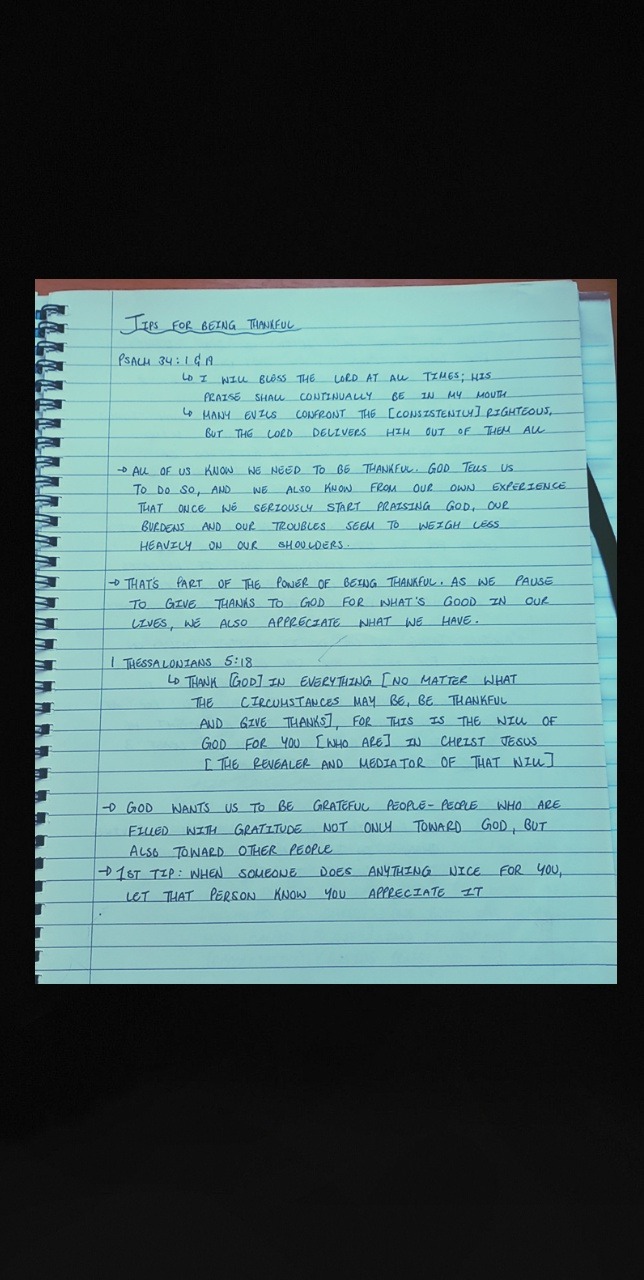#Reformed Baptist
Note
What's your favourite thing about Reformed theology and why?
Asking as someone who doesn't like Reformed theology much who wants to know what its followers like about it.
Thank you for this question. I'm going to do my best to answer it while saying up front that I'm not discussing doctrine. I'm not a good debater. I'm taking your kind question as a subjective question, not one that wishes a doctrinal answer or a compare and contrast with other denominations answer.
For me personally, two things that I love about Reformed theology are this:
A High View of God. Reformed Baptists hold and teach a high view of God, His goodness, transcendence, simplicity, and attributes. The higher my view of God, the greater and more wonderful my salvation is. I also deeply appreciate the focus being on God and not on me and my feelings. This equips me to view myself correctly and not be overwhelmed by my feelings which are many and a bit all over the place.
I love the truth of Christian liberty expounded in our Confession: (I also love our confessionalism because it provides clarity and safety.) The liberty which Christ has purchased for believers under the gospel, consists in their freedom from the guilt of sin, the condemning wrath of God, the severity and curse of the law, and in their being delivered from this present evil world, bondage to Satan, and dominion of sin, from the evil of afflictions, the fear and sting of death, the victory of the grave, and everlasting damnation: as also in their free access to God, and their yielding obedience unto Him, not out of slavish fear, but a child-like love and willing mind. All which were common also to believers under the law for the substance of them; but under the New Testament the liberty of Christians is further enlarged, in their freedom from the yoke of a ceremonial law, to which the Jewish church was subjected, and in greater boldness of access to the throne of grace, and in fuller communications of the free Spirit of God, than believers under the law did ordinarily partake of. (2LBCF 21.1)
I think that might be one of the most beautiful lists ever penned by man.
I'm going to tag @walkingthroughthisworld who can check me if I put anything wrong or unclearly.
These are two of my favorite things about Reformed Theology. I love its boldness and clarity, but mostly I love its high view of the Lord and I love the liberty in Christ that it brings.
#ask#ask answered#theology#reformed baptist#reformed theology#thoughts of a layperson#personal#2lbcf
10 notes
·
View notes
Text
I was raised Christian.
I came to faith at age 14.
I'm nearly 28 now.
I just learned YESTERDAY that "Christ" means anointed.
#reformed baptist#raised in a cult (hot take) that only taught how to be moral and judgy to fellow believers#so I'm actually learning more about Christ in the last 5ish years than i have my whole life
4 notes
·
View notes
Text

it do be Reformation Month, y'all!
#christian#christian blog#christian faith#christianity#theology#faith in jesus#holy spirit#reformed theology#protestant#reformation#protestant reformation#reformed baptist#reformed
2 notes
·
View notes
Text
1689 Confession
Chapter 19 - Of the Law of God
1. God gave to Adam a law of universal obedience written in his heart, and a particular precept of not eating the fruit of the tree of knowledge of good and evil; by which He bound him and all his posterity to personal, entire, exact, and perpetual obedience; promised life upon the fulfilling, and threatened death upon the breach of it, and endued him with power and ability to keep it.
Genesis 1:27; Ecclesiastes 7:29; Romans 10:5; Galatians 3:10,12.
2. The same law that was first written in the heart of man continued to be a perfect rule of righteousness after the fall, and was delivered by God upon Mount Sinai, in ten commandments, and written in two tables, the four first containing our duty towards God, and the other six, our duty to man.
Deuteronomy 10:4; Romans 2:14,15.
3. Besides this law, commonly called moral, God was pleased to give to the people of Israel ceremonial laws, containing several typical ordinances, partly of worship, prefiguring Christ, His graces, actions, sufferings, and benefits; and partly holding forth divers instructions of moral duties, all which ceremonial laws being appointed only to the time of reformation, are, by Jesus Christ the true Messiah and only law-giver, who was furnished with power from the Father for that end abrogated and taken away.
1 Corinthians 5:7; Ephesians 2:14,16; Colossians 2:14,16,17; Hebrews 10:1.
4. To them also He gave sundry judicial laws, which expired together with the state of that people, not obliging any now by virtue of that institution; their general equity only being of moral use.
1 Corinthians 9:8-10.
5. The moral law doth for ever bind all, as well justified persons as others, to the obedience thereof, and that not only in regard of the matter contained in it, but also in respect of the authority of God the Creator, who gave it; neither doth Christ in the Gospel any way dissolve, but much strengthen this obligation.
Matthew 5:17-19; Romans 3:31; Romans 13:8-10; James 2:8,10-12.
6. Although true believers be not under the law as a covenant of works, to be thereby justified or condemned, yet it is of great use to them as well as to others, in that as a rule of life, informing them of the will of God and their duty, it directs and binds them to walk accordingly; discovering also the sinful pollutions of their natures, hearts, and lives, so as examining themselves thereby, they may come to further conviction of, humiliation for, and hatred against, sin; together with a clearer sight of the need they have of Christ and the perfection of His obedience; it is likewise of use to the regenerate to restrain their corruptions, in that it forbids sin; and the threatenings of it serve to shew what even their sins deserve, and what afflictions in this life they may expect for them, although freed from the curse and unallayed rigour thereof. The promises of it likewise shew them God��s approbation of obedience, and what blessings they may expect upon the performance thereof, though not as due to them by the law as a covenant of works; so as man’s doing good and refraining from evil, because the law encourageth to the one and deterreth from the other, is no evidence of his being under the law and not under grace.
Romans 3:20; Romans 6:12-14; Romans 7:7; Romans 8:1; Romans 10:4; Galatians 2:16; 1 Peter 3:8-13.
7. Neither are the aforementioned uses of the law contrary to the grace of the Gospel, but do sweetly comply with it, the Spirit of Christ subduing and enabling the will of man to do that freely and cheerfully which the will of God, revealed in the law, requireth to be done.
Ezekiel 36:27; Galatians 3:21.
3 notes
·
View notes
Text
“The liberty which Christ has purchased for believers under the gospel, consists in their freedom from the guilt of sin, the condemning wrath of God, the rigor and curse of the law, and in their being delivered from this present evil world, bondage to Satan, and dominion of sin, from the evil of afflictions, the fear and sting of death, the victory of the grave, and everlasting damnation: as also in their free access to God, and their yielding obedience unto Him, not out of slavish fear, but a child-like love and willing mind.”
The Second London Confession of Faith 21.1
#2LCF#1677#1688#Christian liberty#purchased with his blood#redemption#liberty#christianity#theology#confession of faith#confessionalism#reformed baptist
7 notes
·
View notes
Text


It's a little chilly here on the south, so we had extra attendance at church this morning.
The grasshopper is about 4 or 5 inches long, and the lizard is easily 6 or more.
#nature#nature journal#lizards#autumn#godzilla#texas fence lizard#grasshopper#sunday#sunday morning#reformed baptist
2 notes
·
View notes
Text
To Die or Not to Die! - Charles Spurgeon Audio Sermons (2 Corinthians 5:8)
2 Corinthians 5:8 but we are of good courage and prefer rather to be absent from the body and to be at home with the Lord.
To Die or Not to Die! – Charles Spurgeon Audio Sermons (2 Corinthians 5:8)
▶️Charles Spurgeon Sermon Playlist:https://www.youtube.com/playlist?list=PLCDB844A9113F938C
Charles Haddon (C.H.) Spurgeon (June 19, 1834 January 31, 1892) was a British Reformed Baptist preacher…

View On WordPress
#baptist preacher#Christian#Christianity#death#God#heaven#Jesus Christ#pastor#preacher#reformed Baptist#Reformed Baptist preacher#reformed baptist preachers#reformed baptist sermon#reformed baptist sermons#sermon on death#sermons on heaven
0 notes
Text
Do we really believe in Sola Scriptura?
I believe in Sola Scriptura. I stand on it theologically in everything. Sola Scriptura literally means Scripture alone, meaning that Scripture alone is our authority.
Why does Sola Scriptura matter to biblical womanhood? Because without the authority of Scripture, there is no case for biblical womanhood. No Titus 2: 3-5. No Proverbs 31 woman.
Without Sola Scriptura, we have nothing.
I stand on Sola Scriptura. I stand on it theologically in everything. Sola Scriptura literally means Scripture alone, meaning that Scripture alone is our authority.
I’m a Titus 2…

View On WordPress
#5Solas#biblical womahood#Feminism#Five Solas#Genesis#heaven#inerrancy#infallibility#Jesus#manhood and womanhood#Reformed#Reformed Baptist#Reformed Congregational church#Reformed tradition#salvation#Scripture#six day creation#Sola Scriptura#TULIP#universal flood#young earth
1 note
·
View note
Text

I didn't expect to cry in a historical fiction about John Calvin, but this book took the man I respect and am so thankful for and made him...human. Not by making him vile but by showing his fear, strength, courage, friendship, and love.
For some reason, I thought I was stepping into maybe a middle grade or early young adult book, but it's not. There are some moderately graphic martyrdom scenes that really turned my stomach, along with mentions of the debauchery of life in the dark alleys. So, definitely for late teens on up. But this would be a great book to have high schoolers read while studying church history to help them emotionally connect with the events of the Reformation.
I truly enjoyed this book. It blessed my soul.
#feed the muse#odd writer#reformation history#reformed baptist#john calvin#historical fiction#Douglas bond
1 note
·
View note
Video
youtube
What’s The Difference Between Calvinistic & Reformed Baptists | John Mac...
0 notes
Text
A message I did at my youth on Thankfulness ♡




#thankfulness#christianity#bible#reformed baptist#religious#religon#christian faith#faith in god#faithoverfear#church
0 notes
Text

This my random "Christian Colored Glasses" undeveloped, may not hold water, thought:
Parker is Faith
Eliot is Hope
Hardison is love
I don't think there is an exact one-to-one correlation. They each show faith, hope, and love in different ways, but I think a case can be made as to their validity as illustrations.

Parker comes, weak, broken, alone and empty-handed, and then clings for dear life, sometimes literally, to her family, with trust (though it might be weak), and knowledge. She knows who they are and who she is and trusts them all. She has faith in each of them, and they seek to live up to that faith.

Eliot, he does everything out of a desperate need for hope. For the first time in a long time, he has hope. So he becomes hope, hope for himself, for others, and for his team. Eliot is the first one to bring a personal case to Nate. He stands up to Nate. He guards and protects others. Hope isn’t ephemeral. Hope is a hitter and a retreiver.

Hardison does not give up ever because love bears all things. He is the safety net. He's always got their back. He often leads the way, balances, and covers them. Hardison is love. He never loses heart, ever. He sticks with his choice to love these people. Hardison is what keeps them together.
They're each distinct, but you can't have one without the other.

#leverage#eliot spencer#parker#alec hardison#faith hope love#christian colored glasses#Christian#christianity#Reformed Baptist
16 notes
·
View notes
Text
Our little reformed Baptist church sings Psalms, which I did not grow up singing out of a Psalter, but ours are set to tune of other hymns, so I pick up on them very easily. Today, we sang Psalm 22 (which Jesus quotes on the cross), and it is set to the tune of "O Come, O Come Emmanuel." It was such a cool parallel? comparison? Remembering back to Christmas and Israel's suffering and looking forward to the Messiah's coming to then recounting Christ's suffering, death, and resurrection victory as the Redeemer of true Israel.
Here's what the Psalm we sang sounds like:
youtube
0 notes
Text
#bible stuff#god#bible study#christian#jesus#kjvbible#bible#bible scripture#faith#christianity#christians#holy bible#bibletruth#scripture#creation#evolution#biology#zoology#houston baptist university#reformed baptist#religion#southern baptist convention#video post
0 notes
Text
1689 Confession
Chapter 18 - Of the Assurance of Grace and Salvation
1. Although temporary believers, and other unregenerate men, may vainly deceive themselves with false hopes and carnal presumptions of being in the favour of God and state of salvation, which hope of theirs shall perish; yet such as truly believe in the Lord Jesus, and love Him in sincerity, endeavouring to walk in all good conscience before Him, may in this life be certainly assured that they are in the state of grace, and may rejoice in the hope of the glory of God, which hope shall never make them ashamed.
Job 8:13,14; Matthew 7:22,23; Romans 5:2,5; 1 John 2:3; 1 John 3:14,18,19,21,24; 1 John 5:13.
2. This certainty is not a bare conjectural and probable persuasion grounded upon a fallible hope, but an infallible assurance of faith founded on the blood and righteousness of Christ revealed in the Gospel; and also upon the inward evidence of those graces of the Spirit unto which promises are made, and on the testimony of the Spirit of adoption, witnessing with our spirits that we are the children of God; and, as a fruit thereof, keeping the heart both humble and holy.
Romans 8:15,16; Hebrews 6:11,17-19; 2 Peter 1:4,5,10,11; 1 John 3:1-3.
3. This infallible assurance doth not so belong to the essence of faith, but that a true believer may wait long, and conflict with many difficulties before he be partaker of it; yet being enabled by the Spirit to know the things which are freely given him of God, he may, without extraordinary revelation, in the right use of means, attain thereunto: and therefore it is the duty of every one to give all diligence to make his calling and election sure, that thereby his heart may be enlarged in peace and joy in the Holy Spirit, in love and thankfulness to God, and in strength and cheerfulness in the duties of obedience, the proper fruits of this assurance; so far is it from inclining men to looseness.
Psalm 88; Psalm 77:1-12; Psalm 119:32; Isaiah 50:10; Romans 5:1,2,5; Romans 6:1,2; Romans 14:17; Titus 2:11,12,14; Hebrews 6:11,12; 1 John 4:13.
4. True believers may have the assurance of their salvation divers ways shaken, diminished, and intermitted; as by negligence in preserving of it, by falling into some special sin which woundeth the conscience and grieveth the Spirit; by some sudden or vehement temptation, by God’s withdrawing the light of His countenance, and suffering even such as fear Him to walk in darkness and to have no light, yet are they never destitute of the seed of God and life of faith, that love of Christ and the brethren, that sincerity of heart and conscience of duty out of which, by the operation of the Spirit, this assurance may in due time be revived, and by the which, in the meantime, they are preserved from utter despair.
Psalm 30:7; Psalm 31:22; Psalm 42:5,11; Psalm 51:8,12,14; Psalm 77:7,8; Psalm 116:11; Song of Solomon 5:2,3,6; Lamentations 3:26-31; Luke 22:32; 1 John 3:9.
0 notes
Text
Watch "What’s The Difference Between Calvinistic & Reformed Baptists | John MacArthur & Voddie Baucham" on YouTube
youtube
#What’s The Difference Between Calvinistic & Reformed Baptists | John MacArthur & Voddie Baucham#calvinistic#reformed baptist#christian blog#christianity#christians#right response ministries#Youtube#john macarthur#voddiebaucham
1 note
·
View note